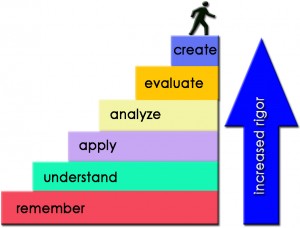For some people, December is the start of the Christmas season, for others, it’s the start of the exam season. In preparation for final exams, students generally spend long period of time memorizing information and formulas, yet a team of UBC researchers found that to succeed, students should study properly, not study more.
Bruce Dunham and his research team studied statistics examinations using a tool called Bloom’s taxonomy and found a miscommunication between students and professors when it comes to assessments. Students will practice low order cognitive skills (LOCS) such as memorizing while professors will test high order cognitive skills (HOCS) such as analyzing data. There are six cognitive levels which the UBC researchers combined into five: remembering, understanding, applying, analyzing and evaluating and creating. Based on these levels, the researchers then categorized statistics examinations questions–a process called “Blooming”.
From their research, Dunham’s team was able to address the common misconception of studying more to achieve higher grades because this method, as many students have found, does not always yield the best results. Instead of memorizing how a problem is solved and the exact equations the professor used in their solution, Dr. Dunham advises students to understand the concepts and learn the skills that the question tests.
The advances in technology has rendered looking up and memorizing information from a book almost useless since the information is generally readily accessible through technology. Therefore, professors have begun to redirect their assessment focus from solely memorizing to being able to interpret or analyze data. The impact of technology continues by supporting students’ learning in the form of online homework, online discussion boards and in-class response systems. In fact, the effects of these newly implemented learning support systems on students’ academic performance was also studied by Dunham’s team. However, due to the lack of baseline data and difficult conditions for collecting data, Dunham’s team only found weak evidence to support the positive impact of technology-driven learning support on students’ academic performance. As students ourselves, we believe that technology and the learning support provided for us have presented positive effects to our learning and the students we interviewed had similar opinions.
As technology evolves, so does our education system and thus the change in focus for assessments. Dr Dunham talked about the “flip classrooms “for the future where students do all materials online ,discuss the questions online and they go to class only if they have some confusions.The evolvement of technology is beneficial for students because they can learn in their own pace. Instructors will benefit from that as well. Therefore, students and professors should appreciate the progress of technology and the usage of that in learning and teaching.












